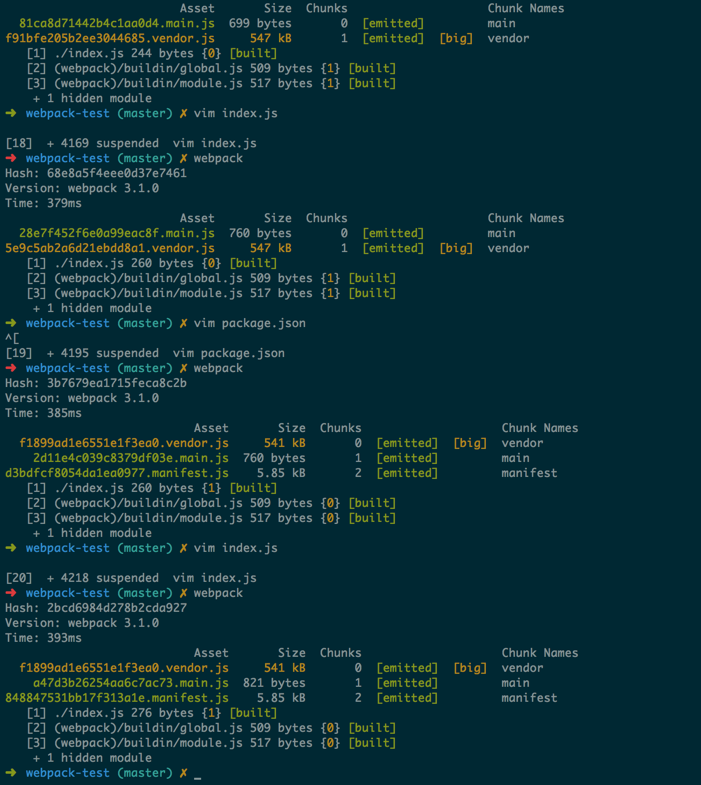webpack
- 分析打包过程
- 分析类库与应用逻辑代码分离
- 打包类库,构建一个打包vue单组件的工具
https://doc.webpack-china.org/guides/development-vagrant/
https://github.com/fouber/blog
https://www.javascripting.com/search?q=css
打包 vs. 加载
注意加载和打包模块之间的一些关键区别很重要。可以在JSPM引擎下找到像SystemJS的工具,用于在浏览器通过运行时(runtime)来加载和转译模块。这和 webpack 有着显著不同,在加载到浏览器之前,模块就已经被转译(通过 "loaders")并打包在一起。
每种方法都有其利弊。运行时(runtime)加载和转译模块,为大型网站增加了大量开销,并且应用程序会由许多模块组成。因此,SystemJS 对于需要少量模块的小型项目更有意义。但是,随着HTTP/2改善文件从服务器到客户端的传输速度,这可能会发生一些变化。请注意,HTTP/2 不会修改转译模块的任何内容,在客户端下载完成后,还是需要很长时间去进行转译。
加入manifest

plugins: [
new webpack.optimize.CommonsChunkPlugin({
name: 'vendor',
minChunks: function (module) {
// this assumes your vendor imports exist in the node_modules directory
return module.context && module.context.indexOf('node_modules') !== -1;
}
}),
//CommonChunksPlugin will now extract all the common modules from vendor and main bundles
new webpack.optimize.CommonsChunkPlugin({
name: 'manifest' //But since there are no more common modules between them we end up with just the runtime code included in the manifest file
})
]
};
脑子要活可以配置多个
优化打包libary代码
module.exports = {
...
externals: {
"lodash": {
commonjs: "lodash",
commonjs2: "lodash",
amd: "lodash",
root: "_"
}
}
...
};

但是在打包vue组件的时候将支出现大量的重复代码